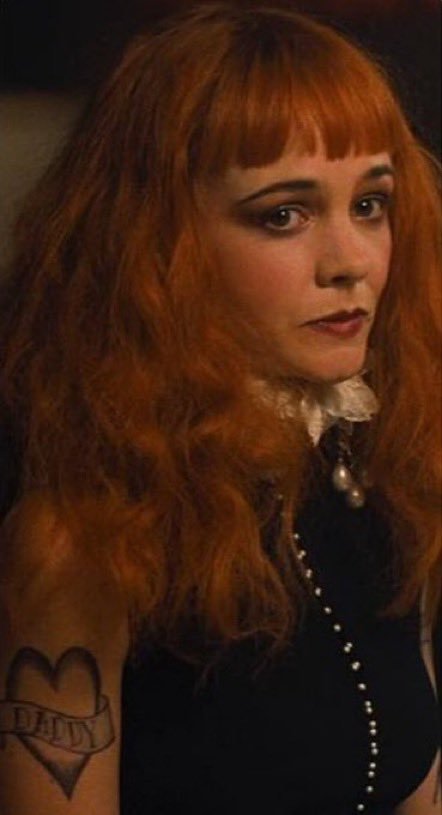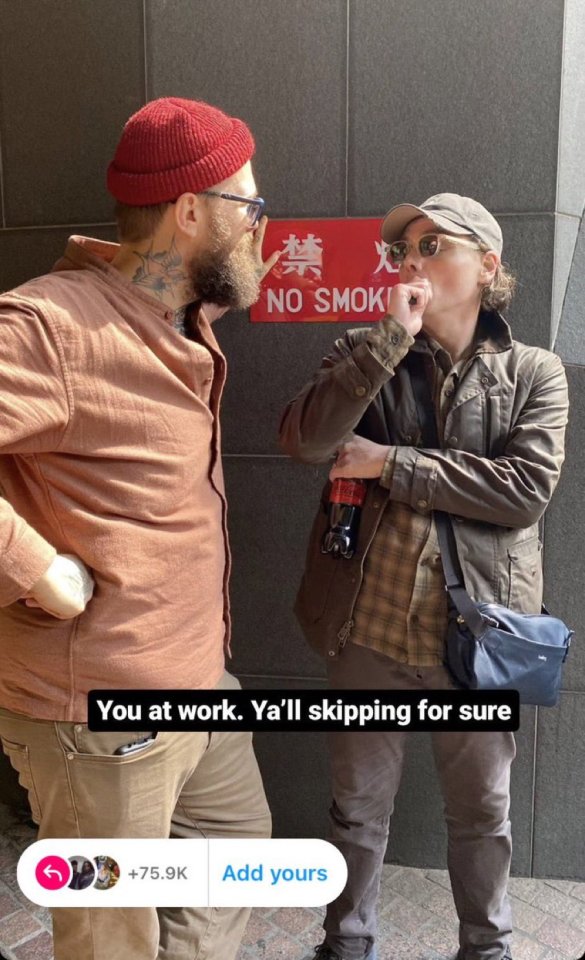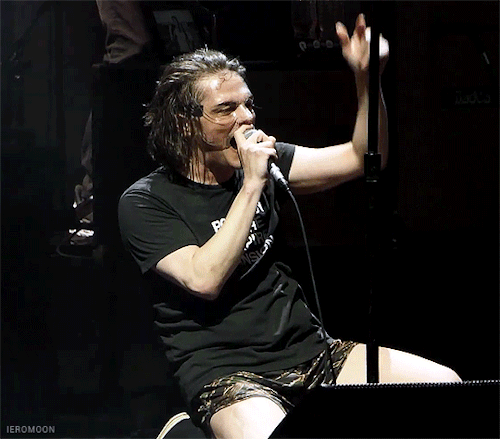Justice For "Poor Dear" Pamela
Justice for "Poor Dear" Pamela
She had like 5 minutes of screentime and ate everybody up







More Posts from Thrownoutbarbie and Others
When Fiona Apple sang, “How can I ask anyone to love me, when all I do is beg to be left alone,” and when Mitski sang, “you’re growing tired of me, and all the things I don’t talk about,” and when Julien Baker sang, “it’s not easy when what you think of me is important, and I know it shouldn’t be so damn important, but it is to me,” and when Elliott Smith sang, “I’m alone but that’s okay, I don’t mind most of the time; I don’t feel afraid to die,” and when the Front Bottoms sang, “sometimes you get sad when we’re together because you’re not sure if you’ll miss me when I’m gone,” and when
Remember that time I read a book everyone said was heartbreaking and I said I’d be fine because nothing like that ever bothers me???
And then I cried through the last two parts???
And I can’t stop thinking about it???
the way felix is convinced he's living in a romance movie to the extent that he dresses up like juliet. he considers kissing oliver in the maze. he makes himself off limits but not quite with the open door while he's in the bath; he's the damsel of the film, no doubt. but felix's tragedy is that oliver is convinced it's a horror story and a tale of revenge. so he doesn't play his part as romeo. he vomits up the poison so he can't die from "some poison more" and leaves felix to die alone.
HOLD ON BABE NEW GERARD PIC DROPPED

(suicide cw) (a little life spoilers) I habitually go back to the last portion of the book. As I read it the first time, I was only dimly aware this was the ending. I could see the number of pages, sure, and the repetitive title of Lispenard Street was ominous enough that I should’ve known - after all, why else would you bookend it like that?
I think it didn’t hit me initially, though, because for all the arduous buildup, all the scares, this is all we get of Jude’s death.

We get the aftermath, of course (and naturally I sobbed through it) - but this is the tragedy we’re led to anticipate the whole book through, and so, aware of its inevitability, I’d expected all the magnitude of Jude’s suicide attempt, of all the tragedies that followed. But Jude’s life gets 800 pages and his death gets two sentences.
The story doesn’t end on an ending. It ends on Lispenard Street.

This is what Harold leaves us with: kindness, and a father and his grinning son reminiscing; and of course that’s how he would tell Jude’s story, of course that’s how you would speak of someone you love, after: with all the kindness of eternity. People aren’t endings. Jude’s life wasn’t a stopgap, it was the story.
I can see how A Little Life might be read as a gruesome, cobweb veiled backstory to a suicide to many. That’s certainly how Jude would see it, at times, I think; but that’s why Harold is the narrator. (Harold, to whom Jude’s life was so precious, who treasured it so wholly and selfishly, as parents often do.)
And so, as we’re taken back to Lispenard Street, I can’t possibly read this story as anything other than a love letter — from a father, to his son’s life.

there's a difference between father and dad. one is a title, the other is a bond.
-
 millky-tears liked this · 1 month ago
millky-tears liked this · 1 month ago -
 ziojinx liked this · 7 months ago
ziojinx liked this · 7 months ago -
 r3dns liked this · 8 months ago
r3dns liked this · 8 months ago -
 whatsloveanyway liked this · 9 months ago
whatsloveanyway liked this · 9 months ago -
 notagarroter reblogged this · 1 year ago
notagarroter reblogged this · 1 year ago -
 rainbow-high reblogged this · 1 year ago
rainbow-high reblogged this · 1 year ago -
 the-sign-of-tea reblogged this · 1 year ago
the-sign-of-tea reblogged this · 1 year ago -
 i-like-a-boss liked this · 1 year ago
i-like-a-boss liked this · 1 year ago -
 the-sign-of-tea liked this · 1 year ago
the-sign-of-tea liked this · 1 year ago -
 neuswastedlife liked this · 1 year ago
neuswastedlife liked this · 1 year ago -
 ladybug20081 liked this · 1 year ago
ladybug20081 liked this · 1 year ago -
 friendlyspacemartian liked this · 1 year ago
friendlyspacemartian liked this · 1 year ago -
 stakethroughyou liked this · 1 year ago
stakethroughyou liked this · 1 year ago -
 ghw666 liked this · 1 year ago
ghw666 liked this · 1 year ago -
 gr1son liked this · 1 year ago
gr1son liked this · 1 year ago -
 mozzzz05 liked this · 1 year ago
mozzzz05 liked this · 1 year ago -
 red-agfilms93s liked this · 1 year ago
red-agfilms93s liked this · 1 year ago -
 crookedsandwichcollection liked this · 1 year ago
crookedsandwichcollection liked this · 1 year ago -
 skeletonfromthecloset liked this · 1 year ago
skeletonfromthecloset liked this · 1 year ago -
 lysnotfox liked this · 1 year ago
lysnotfox liked this · 1 year ago -
 lexyysworld liked this · 1 year ago
lexyysworld liked this · 1 year ago -
 muviworks liked this · 1 year ago
muviworks liked this · 1 year ago -
 frettaganvleet liked this · 1 year ago
frettaganvleet liked this · 1 year ago -
 v0n-dutch liked this · 1 year ago
v0n-dutch liked this · 1 year ago -
 wazohoo reblogged this · 1 year ago
wazohoo reblogged this · 1 year ago -
 songofthesuns liked this · 1 year ago
songofthesuns liked this · 1 year ago -
 todundteufel liked this · 1 year ago
todundteufel liked this · 1 year ago -
 miheehy liked this · 1 year ago
miheehy liked this · 1 year ago -
 you-just-got-izzy-loyed liked this · 1 year ago
you-just-got-izzy-loyed liked this · 1 year ago -
 brevemasinfinita liked this · 1 year ago
brevemasinfinita liked this · 1 year ago -
 adressatieandacoffee liked this · 1 year ago
adressatieandacoffee liked this · 1 year ago -
 janedoe77319 liked this · 1 year ago
janedoe77319 liked this · 1 year ago -
 whoisthis-lvrgrl liked this · 1 year ago
whoisthis-lvrgrl liked this · 1 year ago -
 activelyseekingserotonin liked this · 1 year ago
activelyseekingserotonin liked this · 1 year ago -
 yuppa3 liked this · 1 year ago
yuppa3 liked this · 1 year ago -
 becausewearetwisted liked this · 1 year ago
becausewearetwisted liked this · 1 year ago -
 dracopiasrat liked this · 1 year ago
dracopiasrat liked this · 1 year ago -
 chastisedexhiled liked this · 1 year ago
chastisedexhiled liked this · 1 year ago -
 wolfdressedinlace liked this · 1 year ago
wolfdressedinlace liked this · 1 year ago -
 clubpenguinfan626 liked this · 1 year ago
clubpenguinfan626 liked this · 1 year ago -
 thebluestwaffle liked this · 1 year ago
thebluestwaffle liked this · 1 year ago -
 candiesnweirdosblog liked this · 1 year ago
candiesnweirdosblog liked this · 1 year ago -
 strawberrymochi07 liked this · 1 year ago
strawberrymochi07 liked this · 1 year ago -
 starzz-l0ver liked this · 1 year ago
starzz-l0ver liked this · 1 year ago -
 the-time-is-a-thief liked this · 1 year ago
the-time-is-a-thief liked this · 1 year ago






